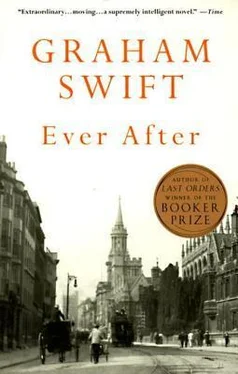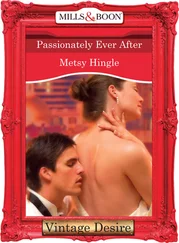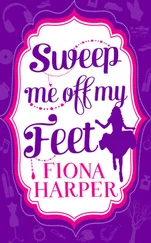At a certain point in the “show,” around midnight, when Miss Rita took her solo spot, it was my task — a strangely domestic ritual — to slip out to the kitchen behind the bar and make the girls mugs of hot, sweet tea (they drank nothing stronger while they performed). I would knock on the dressing-room door, while from the stage would come Miss Rita’s husky imprecations—“Got a crush on you, swee-eetie pie …” A polite pause. “Entrez.” And I would enter, bearing the tray on the outspread fingers of one hand, consciously imitating the gestures of a waiter I had once seen in a Left Bank café. An aroma of perfume, talc and cigarettes never quite disguised the smell of sweat. Three pairs of eyes would greet me. And then one night, in June 1957 (it was Barbara, I think, who left with unexplained suddenness), a new pair of (melting-piercing, greenish-brown) eyes.
You could say I saw her in her first performing role. Girl Number Three at the Blue Moon Club. When she had yet to make her name. Though her name was then just as it would be later, and she was surely no less herself. Ruth: a first-year drama student (en route, yes, for the real theatre), who had jumped into the deep end of this haunt of pleasure in order, like me, to make a little needed money, but also to cure — her stage fright.
In a diamanté-plastered leotard, white gloves, tiara and plume. In a little feminine mockery of black tie and tails, with fish-net tights. Wiggle, kick, smile, turn. She couldn’t dance as well as Mandy and Diana. But she had something that made you not realise this. Something which Mandy and Diana didn’t have.
A look of delicately courted danger, a look which, even as she cradled her mug of sweet tea, made you feel as if you were out on an adventure …
“Ruth, this is Bill, our tea boy. Watch him, he’s a tiger.”
Giggles.
One night Miss Rita couldn’t perform — stricken with flu — and Mr Silvester, proprietor of the Blue Moon Club, a self-possessed East-Ender who had a way of suggesting he had steered himself capably through all manner of roughness to reach this haven of (as he liked to call it) “class,” was thrown into untypical panic.
She volunteered. She had to do it. Of such stuff are show-business fables made. She even uttered a plucky “Don’t worry, Mr Silvester.” And she proved, not exactly that she could sing, but that she could disguise impeccably the fact that she couldn’t sing, could act impeccably the part of a singer; and that she had, moreover, that indefinable, spell-casting quality called (but why don’t we all have it, since we are all present?) “presence.”
I think I saw — and perhaps only I saw — just for a moment, the terror in her eyes, the hidden absence out of which the presence emerged. Then it was gone, she had overcome it, a little internal victory, and I was caught in the spell. And I knew then what I would always be and always want to be and need to be for the rest of my life: a perpetual stagehand waiting for the leading lady’s kiss; a lurker amidst lights and scenery; a shambling devotee of poets and performers; a humble thrall to this business of show-business.
Somewhere in this vision was already a scene in which, in some hotel suite stuffed with flowers and invitations, where Ruth held court to journalists and photographers, I would open the door from the bedroom, a preposterous figure in a dressing-gown, blink, pause, then withdraw again with a mumbled apology. But in that brief instant she would have turned to me with a smile and a look quite different from that reserved for her sycophantic retinue. And the retinue would have noticed and would think (much in the manner of some new acquaintances in this place): Can that really be—? Him?
A spotlight’s moonbeam. A shimmering creature in a clinging dress, hurriedly spirited up from somewhere, of midnight blue, hung with silver sequins and slit to mid-thigh. Smoke-furls. The piano’s tiptoe; the drum’s whisper. Her lashes flutter over the microphone, her lips part, noiselessly for a moment, as if inviting the audience to take delicious pity on her girlish trepidation.
Then: “I’m wild again, beguiled again …”
Pause: for the heavy-jowled patrons at the front tables to pull on their cigarettes, tap their cigars; for the old soak at the bar to bring his glass safely to his lips:
“… a simpering, whimpering child again …”
Who would not have been smitten? Who would not have been bewitched? And yet it was strange how this little world of smoochy melody and sugared lubricity seemed to make way specially, deferentially, for us, its hesitant protagonists. How Mandy and Diana, professional sirens, became as gooey and conniving as bridesmaids. As if everyone could see it even before we did. As if it weren’t supposed to happen, not the real thing, not in this dim-lit domain given over to the hint, the dream, the starry promise, but not the substance of love. But since it was happening — how sweet, how touching, how truly remarkable; and when were they going to get on with it?
When indeed?
Call it, also, stage fright. This stomach-fluttering period of waiting in the wings of love, this nervousness of lovers rehearsing the lines they will inevitably, redeemingly fluff. How strange to think, now, that there was a time when I did not know every inch of her body, every nook and niche and curve, when I had to imagine it — flaunted as it was, within proper limits, by her Blue Moon costumes. When there was as much a sweet shock of nakedness, of disclosure, to realise that this woman who could shine in the spotlight was the same woman who, backstage, would wrap round herself a simple fawn raincoat, run her fingers through her damp hair, light a cigarette or yawn with a sort of surprised intentness, one hand patting her lips the way boys make Red Indian noises. It was her , it was her , you see, never those roles she dressed in.
How strange to think there was a time when all those first times were yet to come. The first time we kissed (a mistimed, fumbling, near-bruising affair like a collision of birds in mid-air); the first time she shed her clothes for me; the first time my bare palms pressed her bare breasts; the first time … Then suddenly all these first times were passed through, like a dizzy mist; there was this woman who had stepped out of possibility into actuality, as if I had validated her existence. To put your arms round another. To say, be mine, be here, always be here. And then one day she was gone; where she had been there was air.
To think there was a time when I went back to my single, solitary, auto-erotic bed, on those summer nights which were already racing towards dawn, and hoped and feared and doubted and imagined, watched over by custodial and commiserative poets. And Mrs Nesbitt, my landlady, that old crow who hopped around below my eyrie, already had me down as a confirmed libertine. This “job” that brought me home, four nights a week, at three in the morning. At which hour, I suspect, she lay pruriently in wait, but never got her chance, hoping for a damning trail of scent, whispers and stifled giggles to ascend the stairs.
To think there was such a time when we hadn’t yet stepped into each other’s lives. When we never even knew each other. “I wonder, by my troth, what thou and I did, till we lov’d …?” These things are meant to be. Life has a thousand avenues, but these things (surely?) are meant to be. To think she too must have wondered: will this happen? Shall I, shan’t I? Will he, won’t he? It is a kind of stage fright. This rendering of yourself to another. This saying: here I am. And even at the height of her success (you won’t believe this) I would see her suddenly stricken with stage fright, enough to make her physically sick. That face (I try to remember it): so charged, so elusive (a thousand pictures failed to capture it). I never saw a face so brimming and in motion. So crystalline yet so liquid. So tender, so potent. A face that needed to be stilled. A cigarette helped. Better still, a kiss. Best of all, a part to play. A part to play. So fragile. So brave.
Читать дальше












